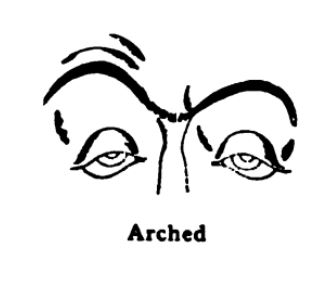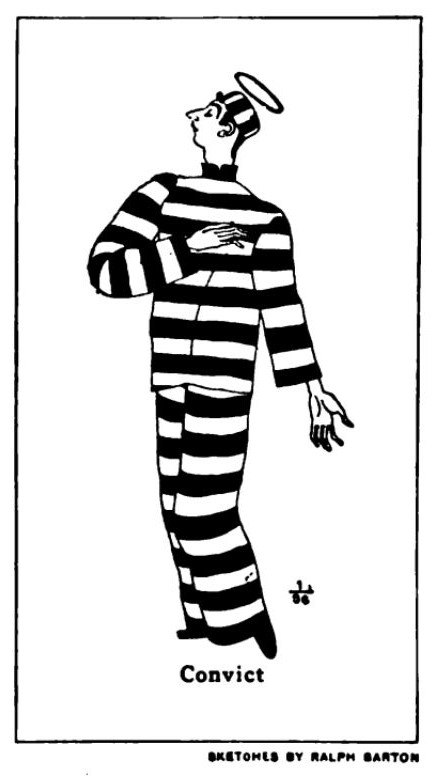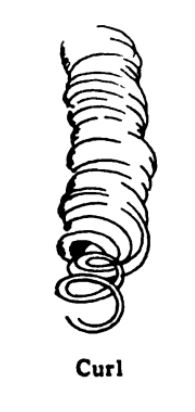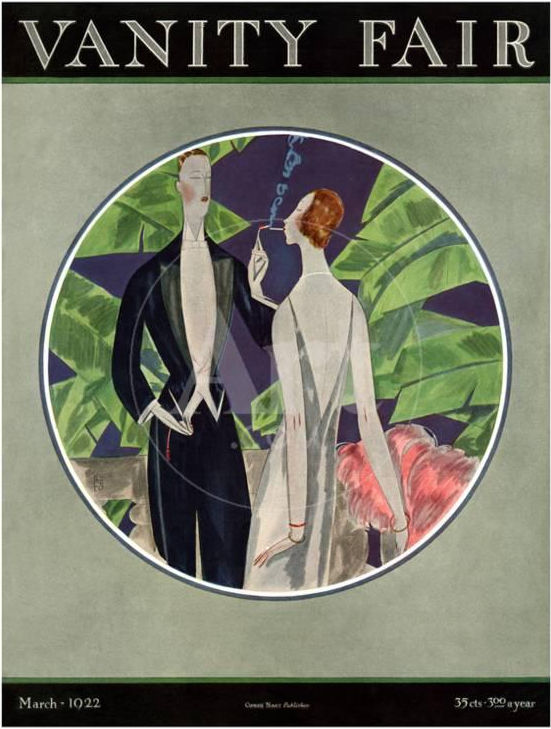A Dictionary for the Motion Pictures
A Convenient Lexicon for Those Who Like the Cinema—and for Those Who Don’t
Compiled and Edited By WILLARD HUNTINGTON WRIGHT
ABANDONED, n. Profligate; wicked; immoral. An abandoned woman is one who attends cabaret parties at which confetti are thrown.
ABATTOIR, n. A slaughter-house; a scenario department during the process of adapting a classic for the screen.
ABED, adv. Where women of more or less questionable character have breakfast.
ADAPT, v.t. To make suitable for; as, to adapt a novel for the screen. Synonyms: alter; massacre; distort. (See, abattoir.)
ADVENTURESS, n. Any woman who smokes cigarettes, and receives callers in a peignoir.
ALIKE, adj. Similar; the same; in no way different: such as the relationship of one motion picture to another.
ALIVE, adj. The condition of a leading man who has been shot or has met with an accident which would have instantly killed any other human being.
ALWAYS, adv. Designating with what degree of frequency virtue triumphs over vice.
AMAZEMENT, n. The mental state of a husband when, a week before he is to become a father, he learns of the fact through accidentally discovering his wife knitting an infant’s garment.
AMBASSADOR, n. A gentleman with false eyebrows, parted whiskers, and grey patches over his ears; who wears a broad strip of ribbon diagonally athwart the bosom of his evening shirt.
ARROGANCE, n. The distinguishing characteristic of the social aristocrats in a screen drama, and of screen actors in the presence of social aristocrats.
ASH, n. That which is flicked from the end of a cigarette, by an actor’s little finger, to register indifference and nonchalance.
APRON, n. An article of attire worn at all times and on all occasions by the benevolent, nonagenarian mothers of poor men in the early twenties.
 ARCHED, adj. The permanent condition of the average actor’s eyebrows.
ARCHED, adj. The permanent condition of the average actor’s eyebrows.
ASSAULT, n. That which is made upon the heroine’s person and the spectator’s intelligence.
BABY, n. The young of the human species, which arrives upon earth by some fabulous and mysterious process in which the husband of the mother apparently does not participate. The average baby at birth is in the neighborhood of two and a half feet long, and weighs approximately thirty pounds.
BACCHANALIA, n. A drunken revel; any party at which a girl dances on the table.
BACHELOR, n. An unmarried man of loose habits, who waxes his moustache and has a Japanese valet. All bachelors are professional, but unsuccessful, Don Juans.
BACK, adv. Where the pure and innocent young country lass always comes after having eluded the base deceiver from the city, with whom she foolishly eloped.
BALL, n. The chief nocturnal diversion of the Four Hundred. A large gathering of people in fancy costumes, disporting themselves in a four-acre hippodrome.
BARE, adj. The state of society women’s shoulders and country maidens’ feet.
BLINDNESS, n. An affliction which, unlike deafness, dumbness, insanity, or the loss of limbs, carries with it the compensation of rendering the victim incapable of witnessing screen dramas.
BLONDE, n. An immaculate maiden; a pure girl; a virgin. (Antonym: brunette.)
BLURRED, adj. A synonym for artistic when applied to photography.
 BOTTLE, n. A glass receptacle used as a candle-stick by misers and indigent artists.
BOTTLE, n. A glass receptacle used as a candle-stick by misers and indigent artists.
BRINK, n. That particular section of disaster on which all pure young ladies constantly hover until rescued by the noble young leading man.
BRUNETTE, n. A loose lady; a vampire; a hussy. (Antonym: Blonde.)
CAFE, n. A den of iniquity which only loose livers patronize, and which no one ever enters except in full evening dress.
CARNIVAL, n. A public fete or celebration which, in foreign countries, is held regularly every night.
CHAIR, n. An article of furniture upon which no ingénue or juvenile “lead” will sit, so long as there is an edge of a table available.
CHEESE, n. An article the presence of which is invariably indicated by a bit of pantomime consisting of grasping the nose quickly between the thumb and forefinger.
CHEVAL-GLASS, n. A full-length mirror which actors enacting dual personalities viciously smash after looking at themselves there in. As a rule, the audience participates vicariously in this act, since it expresses their own feelings in regard to the actor.
CHOKE, v.i. That which an innocent young lady invariably pretends to do when tasting a cocktail for the first time; and that which the audience hopes she will actually do when- they see her thus pretending.
CLIFF, n. One of the cinema’s most prolific means of ridding a congealed plot of characters who have served their purpose.
 CONFESSION, n. An acknowledgment of crime, immediately followed by death.
CONFESSION, n. An acknowledgment of crime, immediately followed by death.
CONTINUITY, n. An ironic misnomer applied to the pictorial construction of a film story.
CONVERSATION, n. That which, with the advent of the silent drama, has been transferred from the stage to the audience.
CONVICT, n. An innocent and upright young man falsely sentenced for a crime he did not commit.
CREASE, n. A crease is the same as a wrinkle, and yet a leading man would probably commit suicide rather than appear in a pair of trousers which did not contain the former or which did contain the latter.
 CURL, n. A cylinder of blonde hair, worn by young ladies as an emblem of biological integrity.
CURL, n. A cylinder of blonde hair, worn by young ladies as an emblem of biological integrity.
DAGGER, n. A weapon which, in the hand of a frail and inexperienced maiden, incapable of dealing instant death to the most powerful desperado.
DEBAUCH, n. Any party at which the ladies are permitted to smoke.
DECLIVITY, n. A more or less steep in cline which cowboys on horseback invariably choose in preference to the level road.
DECOLLETE, adj. A style of gown worn exclusively by the beau monde and De Mille heroines.
DESK, n. An article of furniture in which a wife keeps incriminating love letters and documents concerning her past.
DETECTIVE, n. A person whose powers of detection lie in the fact that he never takes his hat off in the house.
DIARY, n. A book in which a person writes down in detail some compromising secret concerning himself, and which he then places where it is most likely to be discovered by the person whom he least wishes to become privy to the secret.
